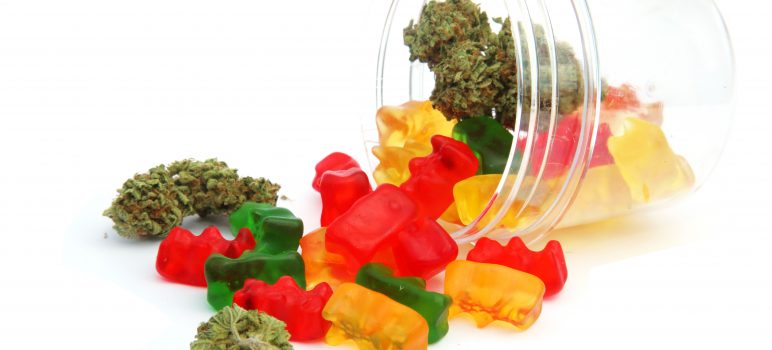Even by local TV news standards, an October 2017 report from WNCN-TV of Charlotte, North Carolina stood out as ludicrous. “It's a treat packing a powerful trick,” warned reporter Brandon Goldner, employing the portentous tone perfected by the fake reporters on The Daily Show. He was referring to cannabis-infused candies, which, he declared with no supporting evidence, were presenting “a nightmare for state drug enforcement agents” worried that evildoers were going to sneak the evil treats into kids' bags on Halloween.
“The colorful packaging, the flavors, they mask the potent ingredient that's found within,” he said.
That potent ingredient was CBD, a component of the cannabis plant that doesn't produce a high, but does have potential health benefits. Goldner did at least make the distinction between CBD and THC, the part of the plant that does produce a high. But he warned that CBD “is known to give users a relaxing feeling.”
Oh, no. Not relaxing.
People involved in cannabis have been laughing at this kind of stuff since the '30s, when scare movies like Reefer Madness came out. That’s why it takes a lot for a news report like the one from WNCN-TV to get widespread attention among them, but this one made the cut, and it got lots of laughs.
Despite Goldner reporting that the candies in question didn't contain CBD, the online headline for the story was “Authorities tracking candies that could get kids high.”
The report presented no evidence of authorities tracking anything and it didn't present any evidence of anyone ever giving out CBD candies to kids on Halloween, much less ones containing THC. It also didn’t answer why anyone would do that, because it makes no sense.
But that hasn't stopped local TV-news droids from using legal weed as the basis for such stories pretty much every year around this time. They even do it during the off season, as when ABC30 Action News in Fresno reported in June last year on a “drug bust,” in which a few sleazoids were caught selling unlicensed edibles and vapes in their clothing shop. The station referred to the products variously as “narcotics” and “processed marijuana,” and the clothes shop as a “front” for this operation, in which the cops seized a couple of pounds of weed.
But Halloween is the prime time for scare stories like this and it's not just the media's fault. The WNCN report had all the earmarks of a rewritten press release from law enforcement, which issues such warnings as a way to appear to be “tough on crime,” even in states where cannabis is legal for medical or recreational use. That's most of the country now.
It's usually simple for law enforcement to find an easily manipulated media outlet to play along, often local TV news. “Watch out for cannabis candies this Halloween,” cautioned an NBC affiliate in Medford, Oregon, but it's not just in small markets. “Officials Warn About Marijuana Candy Ahead Of Halloween,” warned the CBS-owned local station in New York City. Moral panic is a reliable ratings-booster.
This year seems to be light on the scare stories, probably thanks to the pandemic, which is severely curtailing trick-or-treating. But it also seems like the tide might be turning. In recent years, many news outlets have actually done their job and examined the issue, finding that not only is the feat of tainted candy overblown, it's entirely baseless. WBNS in Columbus, Ohio asked, “Are children getting marijuana gummies for Halloween?” The station's answer: “Absolutely not.”
Stories of tainted Halloween treats have floated around for decades. Every kid has heard the urban myth about apples containing razor blades. A 1993 study, however, determined that the number of reports of kids being hurt or poisoned stood at exactly zero. Since then, nobody's reported any such incidents, at least none that can be found in a thorough search of the news.
Someone sneaking a cannabis edible into a kid's Halloween bag seems like the least likely possibility, if for no other reason than this: one of the CBD products shown on the screen in the WNCN story costs $30 per package. That's a pricey way to secretly relax an unwitting child.


> Now she wants to wash her hands clean by giving my daughter to a known rapist.
What does “known rapist” mean? Known to who?
Has the “known rapist” been charged. Then the name of the “charged” or “known” rapist should be public.
If the criminal justice system isn’t doing its job, my guess is that complaints to Child Protective Services or the Bar Association would be in order.
> Beware The Annual Cannabis-infused Candy Scare Stories
Not a scare story, Dan.
There’s a reason that drug proselytizers are called “pushers”.
Not that long ago, (before fentanyl) many “communities” faced an epidemic of “crack babies”.
There are too many people who think giving drugs to children is a good idea.
In the interest of comprehensive reportage, Dan probably should have noted that on the other side of the issue, there are many people who think that blasting people who give drugs to children is also a good idea.